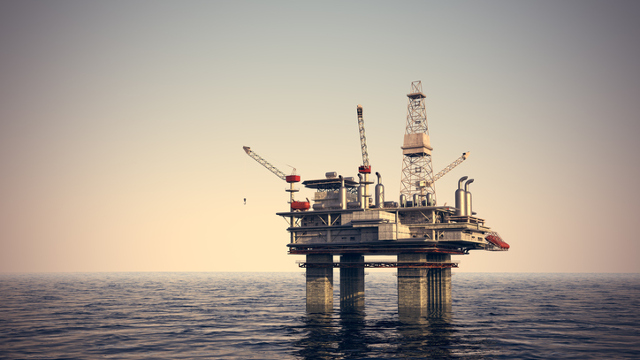ii view: Premier Oil shares surge 19%
Premier Oil further strengthens its UK production, forcing investors to sit up and take note.
7th January 2020 13:04
by Keith Bowman from interactive investor
Premier Oil further strengthens its UK production, forcing investors to sit up and take note.

Acquisitions and full-year 2019 trading update
- Production down 2.6% to 78.4 thousand barrels of oil equivalent per day (kboepd)
- Acquisition of two UK North Sea fields from BP for $625 million (£475 million)
- Acquisition of 25% interest in the UK Tolmount field from Dana Petroleum £145 million
- Acquisitions to be funded by $500 million (£380 million) equity fund raise (placing and rights issue)
- Net debt down 15% to $1.99 billion (£1.51 billion)
Chief executive Tony Durrant chief executive said:
"Premier's strong operational performance in 2019 has generated significant free cash flow for the group enabling us to materially reduce our debt levels and to invest selectively in our portfolio for future growth.
"These acquisitions are materially value accretive for Premier and are in line with our stated strategy of acquiring cash generative assets in the UK North Sea.
“We also look forward to drilling our first well in Alaska, a potentially transformational well for Premier."
ii round-up:
In tandem with its latest trading update, FTSE 250 constituent Premier Oil (LSE:PMO) has announced the proposed acquisition of over £600 million in UK North Sea assets from both BP (LSE:BP.) and Dana Petroleum.
The purchases reflect a push to acquire cash generative UK North Sea assets and will, subject to shareholder approval, be funded via a fully underwritten $500 million share (£380 million) placing and rights issue.
The new additions will take annual production to over 100 kboepd, up from the 78.4 kboepd reported in last year's trading update.
The share price rose by as much as 19% in late morning UK market trading.
2020 production is expected to average 70-75 kboepd before any contribution from the acquired assets.
UK production averaged 54.2 kboepd during 2019, a 16% increase on 2018, aided by a full-year contribution from its Catcher field. The UK's share of group production rose from 58% in 2018 to 69% in 2019, reducing the contribution of overseas fields in Indonesia and Vietnam and helping a more than 40% gain in Premier’s share price since late October.
Tolmount, its next UK growth project, remains on schedule for first gas by the end of 2020, adding a net 20 to 25 kboepd to group production.
Completion of its two field purchases from BP and increased well interest from Dana is expected by the end of the third quarter of this year.
Oil price
Indirectly impacting Premier Oil and its rivals, events in Iraq and Iran are also influencing energy prices.
A further escalation in the shadow war between Iran and the USA, ongoing since 1979, has seen investors contemplating its possible impact on the price of oil and global economic growth.
The oil price has spiked since the start of the new year, up nearly 4% compared to a 21% gain for the whole of 2019. Oil companies such as BP and defence equipment manufacturers like BAE Systems (LSE:BA.) have benefited, while oil consuming companies Carnival (LSE:CCL) and easyJet (LSE:EZJ) have suffered.
Proposed action such as a move by US Democrat's to potentially limit President Trump's military power may have helped soothe investor nerves, while the military might in favour of the US may be adding to the relatively sanguine mood across global markets.
In all, while the escalation of events in the Middle East cannot be ignored, markets remain concentrated on economic fundamentals, with reaction for now reserved until, and if, Iran decides to retaliate. Remember how last year's attack on a Saudi refinery gave only a temporary boost to oil prices, rather than anything long-lasting.
ii view:
Oil exploration and production is a highly volatile business. As such, generally only investors with a medium to high appetite for risk should consider investing in the sector. As for Premier, a ramping up in both UK production and UK assets owned has arguably reduced the company’s risk profile. Its production assets in Pakistan were sold back in March 2019 for $65.6 million (£50 million).
Premier also operates most of its assets, which provides it with strong control over future expenditure programmes and the ability to adjust discretionary spending in the event of a downturn in commodity prices.
On a forecast single digit forward price/earnings (PE) ratio and a discount to rival Cairn Energy (LSE:CNE), the valuation looks undemanding. But the company's need to reduce debt remains worthy of consideration.
Positives:
- Exposure to lower risk UK production assets is increasing
- Net debt further reduced
Negatives:
- Production for both Indonesia and Vietnam fell during 2019
- Factors outside of management control such as the weather can hinder performance
The average rating of stock market analysts:
Buy
These articles are provided for information purposes only. Occasionally, an opinion about whether to buy or sell a specific investment may be provided by third parties. The content is not intended to be a personal recommendation to buy or sell any financial instrument or product, or to adopt any investment strategy as it is not provided based on an assessment of your investing knowledge and experience, your financial situation or your investment objectives. The value of your investments, and the income derived from them, may go down as well as up. You may not get back all the money that you invest. The investments referred to in this article may not be suitable for all investors, and if in doubt, an investor should seek advice from a qualified investment adviser.
Full performance can be found on the company or index summary page on the interactive investor website. Simply click on the company's or index name highlighted in the article.